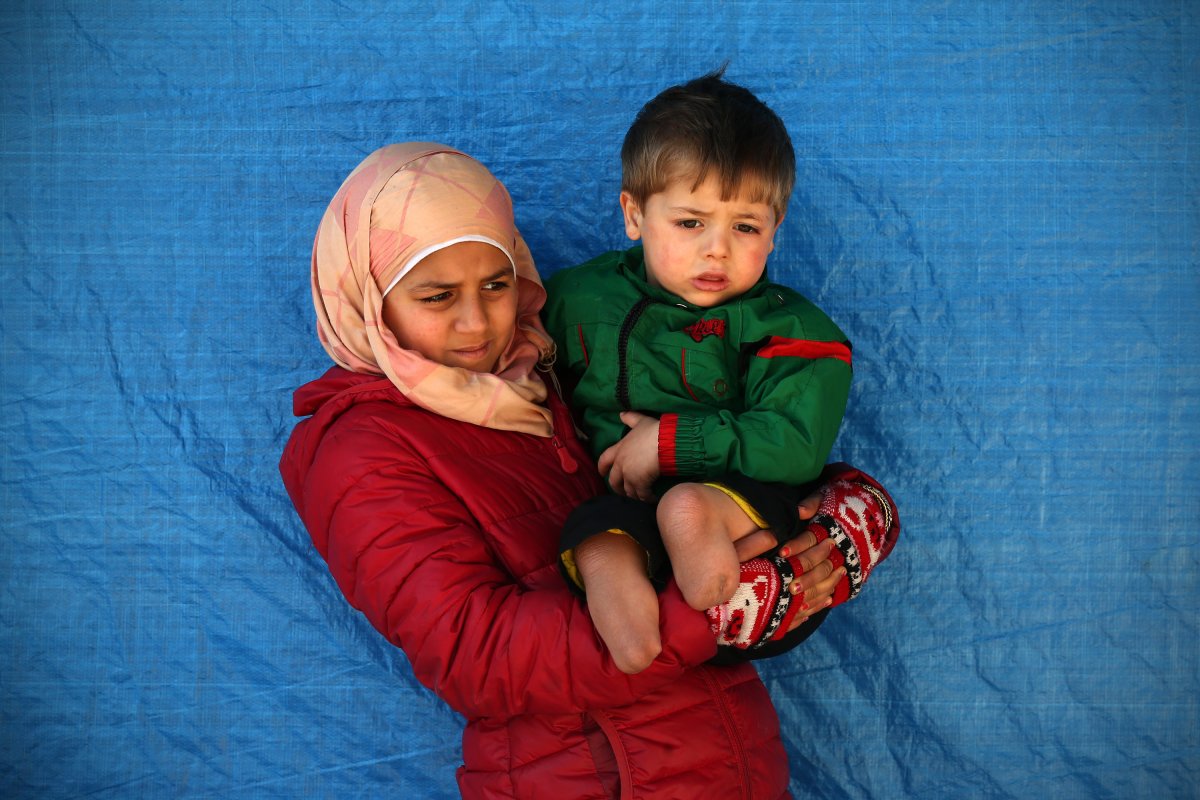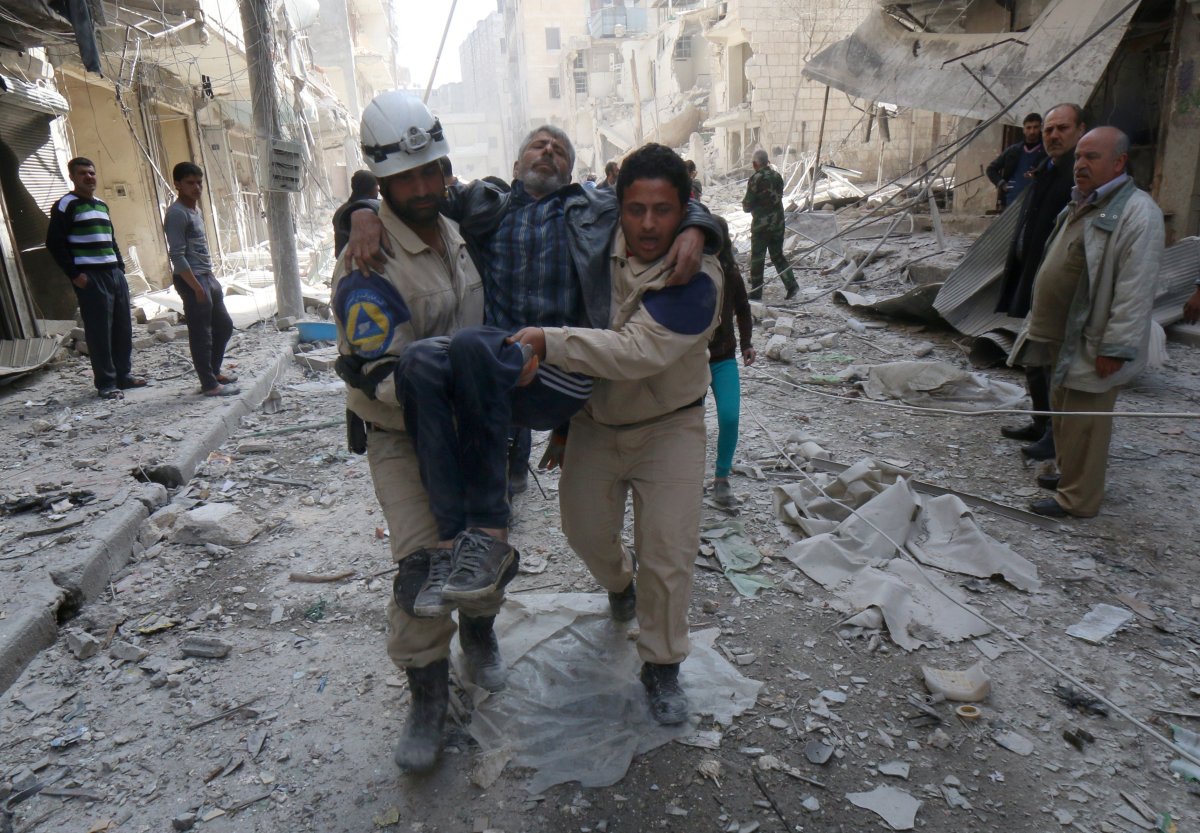The federal Conservatives want to extend Canada’s anti-ISIS campaign to include airstrikes on Syria. This is necessary, Prime Minister Stephen Harper says, because the group “must cease to have any safe haven in Syria.”

READ MORE: Harper seeks expanded airstrikes in Iraq and Syria against ISIS
But in doing so, Canada may be helping Syrian President Bashar al-Assad, who has, evidence indicates, cluster-bombed and gassed his own civilians, contributed to a massive humanitarian crisis and killed hundreds of thousands of people – far more than the so-called Islamic State Canada has vowed to defeat.
An independent United Nations human rights commission report found government and pro-government forces target civilians with impunity; indiscriminately shelling civilian areas and hospitals using barrel bombs, cluster munitions and chemical weapons; arbitrarily arresting individuals and subjecting them to torture; laying siege to entire areas and preventing the passage of food, medical supplies, water and electricity.
Human Rights Watch has called out the Assad regime for indiscriminately attacking civilians. “Government forces also continued to arbitrarily arrest, disappear, and torture detainees, many of whom died in detention,” the group wrote.
In the House of Commons earlier this week, Harper said he will not request Assad’s “explicit consent” in launching airstrikes on ISIS targets in Syria – backtracking on a vow he made several months ago to only intervene militarily in countries where Canada has the government’s permission to do so.
But Canada has not said anything about how its planned airstrikes in Syria will affect or be communicated to Assad.
Assad told the BBC in an interview he has been indirectly in touch with the United States about its military plans in Syria and that “general messages” were being passed by third parties.
Foreign Affairs spokesperson François Lasalle said Canada “has not been in communication with Syria regarding its proposed mission there, and is not planning such communication.”
In response to questions about Canada’s communication with Assad, and the possibility Canadian troop movements could be conveyed to him, Foreign Affairs Minister Bob Nicholson’s spokesperson Johanna Quinney sent the following statement:
- Roll Up To Win? Tim Hortons says $55K boat win email was ‘human error’
- Bird flu risk to humans an ‘enormous concern,’ WHO says. Here’s what to know
- Halifax homeless encampment hits double capacity, officials mull next step
- Ontario premier calls cost of gas ‘absolutely disgusting,’ raises price-gouging concerns
Quinney reiterated Harper’s assertion that Canada’s basis for attacking ISIS in Syria is the same as that of the United States.
“As the Obama administration has reported to the UN, they are taking ‘necessary and proportionate military action in Syria in order to eliminate the ongoing threat to Iraq’ on the basis that Syria is ‘unwilling or unable’ to prevent ISIL from staging operations and conducting attacks into Iraq from Syrian territory.”
READ MORE: Why Middle East strongmen are the real winners of the Islamic State crisis
On Thursday, Nicholson issued a statement condemning Assad’s continued use of chemical weapons.
“President Bashar al-Assad’s brutal actions against his own citizens have resulted in a downward spiral of violence and extremism and a humanitarian crisis of appalling dimensions—and created the fertile conditions for the so-called Islamic State of Iraq and the Levant to grow,” the statement reads.
It isn’t clear how Canada plans to achieve the latter.
But Alex Neve, head of Amnesty International Canada has misgivings. Even before ISIS complicated things, Canada hasn’t been as aggressive as it could in calling for international legal action against Assad for human rights abuses.
“Canada should be pressing hard for the UN Security Council to refer the entire Syrian human rights crisis to the international criminal court, including Assad and members of his government,” Neve said. “We have not been pressing hard enough.
“There have been times when Canada, over the past few years, has been ambivalent when it comes to referring the issue to the International Criminal Court.There have been times Canada has not endorsed initiatives put forward by other governments.”
Canada also hasn’t been doing its part when it comes to addressing the massive humanitarian crisis that’s resulted from the Syrian conflict, Neve said.
“We’ve certainly expressed particular disappointment that Canada has not been as generous as we can and should be when it comes to resettling Syrian refugees.”
Now that Canada’s getting militarily involved in Syria, but is attacking Assad’s enemies, “it will be absolutely vital that Canada not conduct itself in a military fashion or a political fashion or any other manner so that those human rights concerns are overlooked,” Neve said.
Liberal MP Irwin Cotler has been calling for Canada to take more aggressive action against Assad for years. He’s leery of this mission, he told Global News.
“They’re now giving Assad a green light to continue his criminally without, let’s say, authorizing certain measures that I’ve called for in the past, such as a no-fly zone, a no-drive zone,” he said.
He still wishes Canada has intervened long ago. In the meantime, millions of Syrians have been displaced both internally and externally; much of the country has been decimated; the national life expectancy dropped two decades in four years, according to the United Nations.
INTERACTIVE: Here’s what 3.9 million Syrian refugees looks like
“Everything we were told would happen if we intervene, happened because we didn’t intervene,” Cotler said.
Harper has said Canada is pursuing military action in Syria on “exactly the same legal basis as its allies,” presumably the United States, and quipped that the only legal objection to Canada’s plans would come from ISIS lawyers.
But both NDP leader Tom Mulcair and Liberal leader Justin Trudeau have expressed reservations. The NDP has called on Canada to end airstrikes and shift its focus to more humanitarian efforts.
“This is a man who has used chemical weapons on his own citizens and whose regime is responsible for torturing and killing many more innocent people than even [ISIS],” Trudeau said.
“We cannot support a mission that could very well result in Assad consolidating his grip on power in Syria.”





Comments